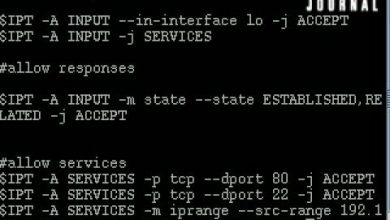Uninterruptible Power Supply (UPS) Systems

Uninterruptible Power Supply (UPS) Systems Free Tutorial Download
What you’ll learn
-
1. Assessment of power supply reliability and power quality.
-
2. Defining load classes and assessment of the impacts of poor supply reliability and quality.
-
3. Understanding and analysis of the sources, and effects of various power quality (PQ) disturbances.
-
4. Analysis and design of various power distribution system configurations and their relation to power supply reliability and power quality.
-
5. Configurations of practical UPS systems as well as their characteristics, and operation.
-
6. Selection criteria of UPS systems for providing adequate power supply reliability and quality considering various load classes.
-
7. Installing and operating UPS systems.
-
8. Maintenance requirements and procedures as well as troubleshooting UPS systems.
Requirements
-
Basics of electrical engineering
The power supply systems must provide maximum reliability and power quality while its costs are to be minimized. These requirements present a major design, operation, and maintenance challenges due to the dilemma between supply improvements and the associated investments. Therefore, the design, operation, and maintenance of power supply systems are usually a compromise between the reliability and quality of supply from one side and the required investments from the other side. The main impacts of power interruptions and low power quality are the costs and safety associated with them. Therefore, electrical loads are classified according to the impacts of interrupting their power supply; loads are classified to non-essential, essential, and critical. The impact of power interruptions on non-essential loads are minor while interruptions have a significant impact on the essential loads, especially if the interruption duration is above a specific threshold value. Critical loads are a class of the loads that should not be interrupted under any circumstances. The hazards, and costs associated with interrupting critical loads are usually intolerable even if the interruption duration is very small.
For essential and critical loads an alternative safe supply must be available for providing the required reliability and power quality levels. The Uninterruptible Power Supply (UPS) is a main tool for providing safe power supply for these load classes. UPSs have many designs, operation, and control algorithms. The main differences UPS categories are the power capacity, switching time, safe duration, maintenance requirements, available system monitoring, self-diagnosis, and costs. For safe durations from minutes to – for example – an hour, static UPSs are the ideal safe supply alternative while in longer duration electromechanical UPSs provide an economically feasible alternative supply. According to the load requirements and interruption statistics, a justified mix of static and electromechanical UPSs may be chosen for providing an optimal alternative supply. In all cases, the flexibility allowed to deviate from perfect reliability and power quality should be used to allow designing cheaper and simpler alternative supply systems; however, this flexibility should not be wasted by permitting poor maintenance and operating procedures to compromise the reliability and quality.
There are often cases that the alternative supply systems are not well selected, or incorrectly installed, operated, maintained. In other cases, they do not work properly when needed and this failure caused losses in term of time, money, and safety. Therefore, this training course provides and in-depth analysis of supply requirements for various load classes. In addition, the course surveys various options for providing an adequate supply system considering the design of the power distribution systems up to UPSs. Choice and design of system designs and UPSs are carefully covered within the course. Operation, maintenance, and troubleshooting of various supply alternatives are also considered in this course and typical case studies and simulations are presented.
- Electrical engineering students.
- Engineers and technicians working in UPS and supply control.
- Engineers and technicians working in reliability.
- Engineers and technicians working in operation and maintenance.
- Engineers and technicians working in power system Engineering.
Download Uninterruptible Power Supply (UPS) Systems Free
https://mshare.xyz/file/q0LxgidC
https://jxjjxy-my.sharepoint.com/:u:/g/personal/hoquangdai_t_odmail_cn/EQv5nqhmrZVFmHI0KQ831msB1PVjVxWktnDkbsu3DuXuYg
https://anonfile.com/v7Acp2geo0
https://drive.google.com/a/edusuccess.vn/file/d/18a6r0BA-YvBpId_fYb_QsWhUyXpZUaEe/view?usp=sharing
https://drive.google.com/a/edusuccess.vn/file/d/1RR1Et-NxjLTE1NSyDNsXCNyWxOE1vg0E/view?usp=sharing
https://uptobox.com/dzgzhae6b7si




